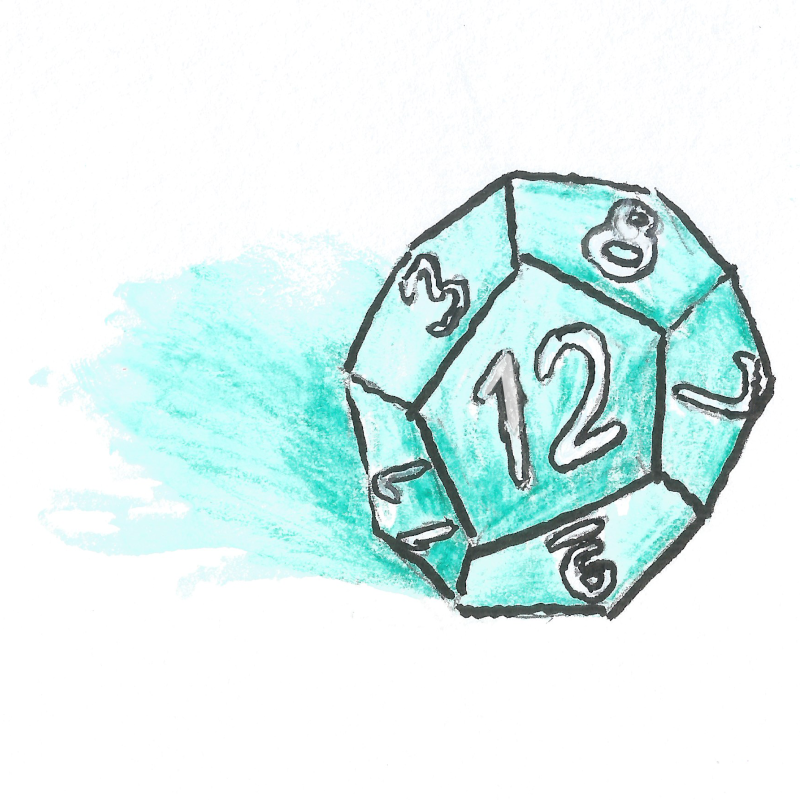I said that gamemastering was a magic trick, and in its best moments, it certainly feels like it.
Every so often, I open up Obsidian, dump out however much or little I feel like writing about the upcoming arc in my ongoing game. I will write boxed text if I’m feeling ambitious, or at least a long bulleted list of what the players might interact with or what actions NPCs will take.
And then every week, at the (virtual) table, it somehow ceases to be my unhinged scrawl and becomes an experience in shared meaning-making.
I realize I’m using almost sacramental language here, but again, it’s a magic trick. Part of recognizing the magic trick is knowing that I didn’t engineer that by my own cleverness. I gave just enough detail to be interesting, in the spots where the players were looking, and the players brought it to life by investing in it.
A good story and a good game world are just as much the players’ doing as it is the GM’s, even in systems that don’t have shared setting creation mechanics. And as a player, that should encourage you to explore what you’re given by your GM, and dig into the parts that resonate with you. (A good GM will appreciate that—within reason, of course—even if it leads them somewhere they didn’t expect.)
A bizarre thing I’ve had happen lately is that players will tell me, out of game, about various NPCs or locations or items. It’s wild. I am those NPCs. I wrote those locations and items. They exist half-formed within my mind, just enough detail that I can flesh them out when necessary. (I’m pretty sure I play all my NPCs basically the same way, and they’re pretty flat!)
And yet people are talking to me like they’re real, and more importantly, like they’re things that exist separately from myself. Like they can tell me something I don’t already know about them. It’s humbling, but it’s a very, very weird feeling if I think about it too hard (which I usually do).
And I’ve been on the other side as a player. I’ve talked to other players between games about the big feelings my character has about what their character did. I know “let me tell you about my D&D character” is a meme for a reason, but with a good group, I would rather talk about our shared story. My character is afraid of certain threats, he’s trying to reconcile tensions between party members, he’s preoccupied with these matters. I don’t hate you, but my character sure hates what your character did.
As a gamemaster, you can encourage this as part of the game: occasionally, give your characters NPCs that they need to explain their situation to. Give them an opportunity to get caught up in telling their story so far from their perspective.
And pay attention to what they say, what they don’t say, and why. Obviously, what they say tells you what they think is important. (They might even have some assumptions you didn’t consider, which is great fodder for later plot hooks.)
What they don’t say tells you what they think is important to keep secret, that they don’t think they can entrust to others. There’s meaning wrapped up in that, meaning you can inject back into your GM prep. (Not to screw them over, of course—but to ensure that their discretion actually reaps rewards.)
